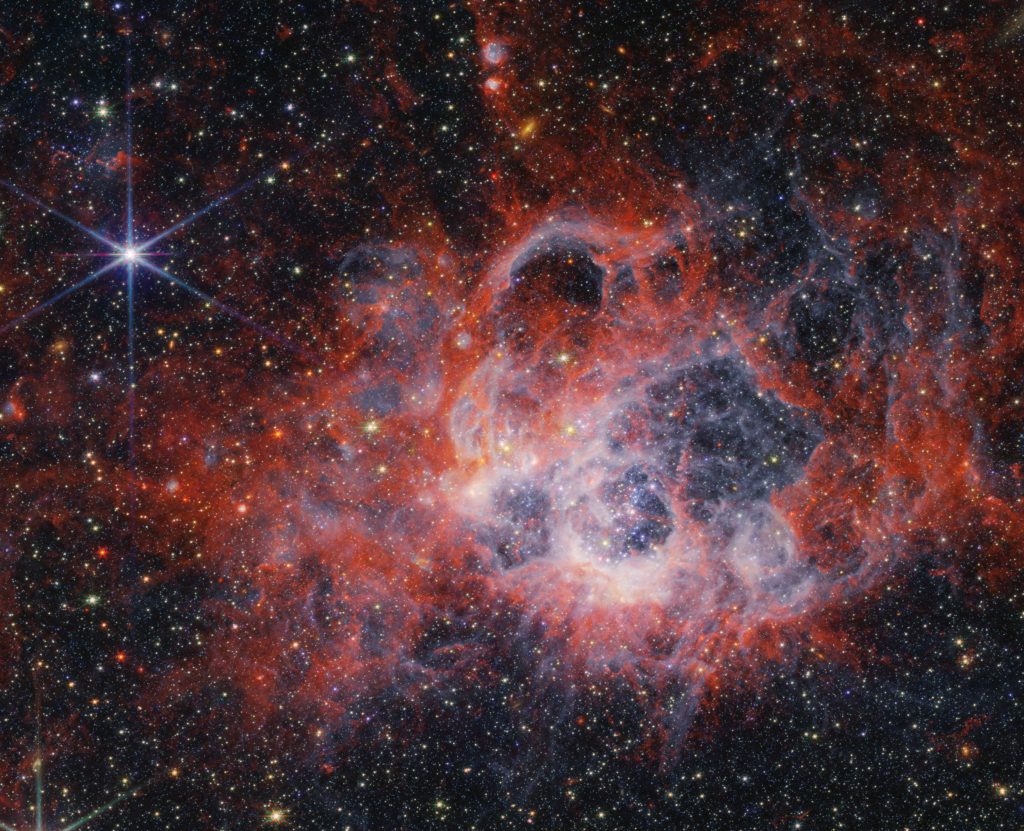ABOUT THE COURSE
Our universe is full of molecules, from the simplest – molecular hydrogen – all the way up to the complex molecular structures essential to the chemistry of life on Earth. A large and diverse array of chemical species has been detected not only on planets but in interstellar clouds, in regions of star formation, in protoplanetary disks, and in comets and meteorites within the solar system. But how and when was all this material formed, and how does it evolve over time? How much molecular content is inherited from one stage of star and planet formation to the next? What role does the chemistry of the universe through cosmic time play in the origins of life? A major unanswered question remains whether the molecules essential to life were produced on the early Earth (endogenous origin), or whether they were produced in the parent interstellar medium or planet-forming disk and delivered to Earth via asteroids, comets and their meteoritic remains (exogenous origin).
This lecture course will be devoted to astrochemistry and the exploration of topics related to the chemical origins of life. In 18 lectures from the world-leading experts, we will discuss the history of the early molecular universe starting from the Big Bang; environmental conditions and key physico-chemical processes in space; astronomical observations (from ground to space) of objects of astrochemical interest; chemical models describing astrophysical environments and their reaction networks; key laboratory techniques and approaches for studying astrochemical processes; chemistry in specific environments, such as the interstellar medium, protoplanetary disks, and atmospheres of (exo)planets; exogenous synthesis and delivery of biomolecule precursors; and, finally, evolution of these precursors on the early Earth.
GALS is aimed at providing a broad overview of scientific issues, problems, achievements, and open questions in astrochemistry; and at helping senior undergraduate and postgraduate students as well as early career scientists to expand their interests and develop a firm understanding of this area, sufficient to choose an appropriate direction for their future career. The course is open to students and scientists from all over the world, but the organizers reserve the right to be selective in terms of access and to limit the total number of participants.
In the coming years, GALS will consist of two parts: 14 core lectures and 4 special lectures. There will be a new topic for special lectures every year. For the coming semester, we have chosen JWST.
LECTURERS
- Edwin Bergin, University of Michigan, USA
- Dieter Braun, Ludwig Maximilian University of Munich, Germany
- Macarena Garcia Marin, Space Telescope Science Institute, USA
- Robin Garrod, University of Virginia, USA
- Wolf Geppert, Stockholm University, Sweden
- Inga Kamp, University of Groningen, The Netherlands
- Laura Kreidberg, Max Planck Institute for Astronomy, Germany
- Martin McCoustra, Heriot-Watt University, Scotland
- Stefanie Milam, NASA, USA
- Tom Millar, Queen's University Belfast, UK
- Alexey Potapov, Friedrich Schiller University Jena, Germany
- Sean Raymond, University of Bordeaux, France
- Will Rocha, Leiden University, The Netherlands
- Martin Rubin, University of Bern, Switzerland
- Barbara Ryden, The Ohio State University, USA
- Dima Semenov, Max Planck Institute for Astronomy, Germany
- Alexander Tielens, University of Maryland, USA and Leiden University, The Netherlands
- Catherine Walsh, University of Leeds, UK
COURSE PROGRAM
1. Basics of astrochemistry
Dima Semenov, Max Planck Institute for Astronomy, Germany
10.02.2025 at 16:00 CET
2. Big Bang and formation of the elements
Barbara Ryden, The Ohio State University, USA
13.02.2025 at 15:00 CET
3. Environmental conditions in space
Alexander Tielens, University of Maryland, USA and Leiden University, The Netherlands
17.02.2025 at 16:00 CET
4. Origin of planetary systems
Sean Raymond, University of Bordeaux, France
20.02.2025 at 15:00 CET
5. Astrochemical observations
Edwin Bergin, University of Michigan, USA
24.02.2025 at 16:00 CET
6. JWST: the history and technical side
Stefanie Milam, NASA, USA
27.02.2025 at 16:00 CET
7. Chemistry in the interstellar medium
Tom Millar, Queen's University Belfast, UK
04.03.2025 at 15:00 CET
8. ISM astrochemical modelling
Robin Garrod, University of Virginia, USA
06.03.2025 at 16:00 CET
9. Chemistry in (exo)planet atmospheres
Laura Kreidberg, Max Planck Institute for Astronomy, Germany
10.03.2025 at 15:00 CET
10. Chemistry in protoplanetary disks
Catherine Walsh, University of Leeds, UK
12.03.2025 at 15:00 CET
11. Laboratory astrochemistry. Gas-phase processes
Wolf Geppert, Stockholm University, Sweden
18.03.2025 at 16:00 CET
12. Laboratory astrochemistry. Solid-state processes
Martin McCoustra, Heriot-Watt University, Scotland
21.03.2025 at 16:00 CET
13. Gas-phase observations with JWST
Inga Kamp, University of Groningen, The Netherlands
24.03.2025 at 15:00 CET
14. Solid-state observations with JWST
Will Rocha, Leiden University, The Netherlands
27.03.2025 at 15:00 CET
15. Composition of cometary ices and implications for our Solar System
Martin Rubin, University of Bern, Switzerland
31.03.2025 at 15:00 CET
16. Exogenous synthesis of biomolecule precursors
Alexey Potapov, Friedrich Schiller University Jena, Germany
03.04.2025 at 15:00 CET
17. The Origins of Biochemistry and Life
Dieter Braun, Ludwig Maximilian University of Munich, Germany
09.04.2025 at 15:00 CET
18. How to write a JWST proposal
Macarena Garcia Marin, Space Telescope Science Institute, USA
11.04.2025 at 15:00 CET
